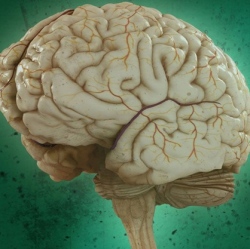
A new diet known by the acronym MIND (Mediterranean-DASH Intervention for Neurodegenerative Delay) could significantly lower a person’s risk of developing Alzheimer’s disease (AD), even if the diet is not meticulously followed, according to a paper published in the journal Alzheimer’s & Dementia.
This finding comes from a longitudinal study by Rush University Medical Center and Harvard School of Public Health of 923 volunteers (144 of them developed AD) shows that the MIND diet lowered the risk of AD by as much as 53 percent in participants who adhered to the diet rigorously, and by about 35 percent in those who followed it moderately well.
Developed by nutritional epidemiologists at Rush University Medical Center in Chicago, the MIND diet is a hybrid of the Mediterranean and DASH (Dietary Approaches to Stop Hypertension) diets, both of which have been found to reduce the risk of hypertension, heart attack, and stroke.
Some researchers have found that these two older diets provide protection against dementia as well. Morris and her colleagues developed the MIND diet based on information that has accrued from years’ worth of past research about what foods and nutrients have good, and bad, effects on the functioning of the brain over time. This is the first study to relate the MIND diet to Alzheimer’s disease.
The MIND diet is easier to follow than, say, the Mediterranean diet, which calls for daily consumption of fish and three to four daily servings of each of fruits and vegetables, Morris said.
The MIND diet has 15 dietary components, including 10 “brain-healthy food groups”, green leafy vegetables, other vegetables, nuts, berries, beans, whole grains, fish, poultry, olive oil and wine, and (because it was tracking what people actually eat, rather than what they should) five unhealthy groups that comprise red meats, butter and stick margarine, cheese, pastries and sweets, and fried or fast food.
The MIND diet includes at least three servings of whole grains, a salad and one other vegetable every day, along with a glass of wine. It also involves snacking most days on nuts and eating beans every other day or so, poultry and berries at least twice a week and fish at least once a week. Dieters must limit eating the designated unhealthy foods, especially butter (less than 1 tablespoon a day), cheese, and fried or fast food (less than a serving a week for any of the three), to have a real shot at avoiding the devastating effects of Alzheimer’s, according to the study.
